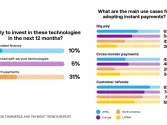
How emotional marketing can bolster brand value amidst consumer trust
Brands face challenges as consumers redefine value in a tech-centric landscape.
EMOTIONAL marketing is gaining significance as brands realise that more consumers tend to assess their feelings on what matters most to them amidst budget pressures.
For Joey Khong, a trends analyst for Southeast Asia in Mintel, emotional marketing is how brands can position themselves in a way that resonates with consumers’ varying emotions.
Speaking with Retail Asia, Khong said: “I think generally, people want to feel things, they want to feel pleasure, joy, pride, or just happiness out of the things that they purchase.”
The same observation has been noted in Mintel’s “2024 Global Consumer Trends” report in which 30% of Chinese consumers with luxury cars worth $41,400 (RMB300k) or above were attracted to brands with more interesting stories.
This spells out that brands must learn to represent their market to improve consumer appreciation and trust.
“Emotional marketing has to be backed by things that are tangible and functional, as well,” Khong said, citing how in Indonesia, the big majority (89%) of consumers think it is worth spending more on things that make their lives easier.
He stressed that consumers do not solely rely on advertising practices. Instead, they absorb information from social media, content creator reviews, and even conversations between friends about brands online.
Leveraging elements that stir up nostalgia and underlining reliability and trustworthiness are some methods brands can use to form more intimate connections, emphasising stability amidst consumer uncertainty.
Fostering brand authenticity
Amidst the potential benefits that come from emotional marketing, Mintel’s report reiterated that consumers associating with brands to represent their values can also be a double-edged sword, as they may abandon or call out brands that do not meet their expectations.
To cope with this, authenticity is encouraged as brands form plans and strategies to connect with their consumers.
“For a brand to really show and be perceived as genuinely authentic, one of the key things is they have to be proactive in how they approach different subject matters rather than reactive,” Khong said.
The expert said proactive brands are those that exert effort in examining consumer specifics, such as the challenges they face or the matters for which they want to make a statement or impact.
“You can’t solve a problem immediately. But starting today you will see a much better shot at positioning yourself in a good light, five or 10 years from now,” Khong advised brands.
In Thailand, about seven in 10 consumers are willing to pay more for beauty products that are made with natural ingredients. In turn, the country’s tourism industry shifted from focusing on tourist numbers to delivering quality-based, sustainable and responsible tourism.
However, a challenge brands may face when employing new strategies is how to rebound from failure, particularly with investments that incur losses.
Khong said he believes that brands can collaborate with other organisations to help prevent such failures.
Balancing efficiency with empathy
Meanwhile, with the current advancements in technologies and artificial intelligence (AI), brands must also consider striking a balance between empathy and efficiency to strengthen their strategies.
Mintel’s report revealed that 65% of Singaporean consumers are concerned about losing touch with reality by spending too much time on the metaverse.
Khong told Retail Asia that brands adopting a “human-as-premium” label can showcase and enhance the human aspect of such services such as generative AI chatbots.
With data readily made available by technologies such as blockchain, the human aspect is crucial in ensuring information is both accurate and easily understandable.
“Putting human faces to the data makes it more relatable and engaging to convey meaningful information,” Khong said.
“Having all that data and making the effort to present it to the consumer shows authenticity, sincerity, and a drive towards positive impact,” he added.



















 Advertise
Advertise






